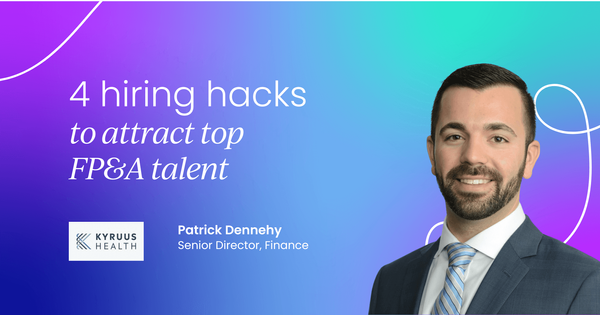Recruiting in finance isn’t easy and I know this because I recently went through the process of building an FP&A team myself. During that experience, I quickly learned that people set parameters based on what they think the FP&A team should look like.
However, there are no specific rules to hiring for an FP&A team because you’re not looking for a singular skill set. There are a lot of different skills that you can glean from people's resumes and backgrounds that might be advantageous to building out your team.
So, I wanted to share some insights into the process of building an FP&A team and designing its structure. I also want to cover the best hiring practices in FP&A to help you find and recruit the best possible talent to build an incredible team.
Table of contents:
- Building and leading a successful FP&A team
- Diversity within your finance function requires diverse skill sets
- Finance recruiting: 3 case studies
- 4 hiring hacks: FP&A and finance recruitment
Building and leading a successful FP&A team

This quote from Steve Jobs resonates with me because it’s a worthwhile way of thinking about your FP&A function and how to make it successful. For example, you need to have the right people and the right software in place to have a successful team.
Over the last year, I’ve prioritized building the right team and getting the right software in place. With that, we started to see success grow quickly and it became evident that change happens constantly.
I view FP&A as a finance business partnering function, as well as a strategic finance function. When I joined my current company, I was an FP&A professional and was told I would mainly work on budgeting and forecasting. However, things changed and soon, I was working with the strategy team helping with due diligence, M&A, investor relations, procurement, departmental reporting, and more.
Diversity within your finance function requires diverse skill sets
Source: Finance Alliance YouTube channel
When I first started building out a team at my last company, I had it in my head that since I had an FP&A background, I needed to hire someone with an FP&A background too. This seemed like the most logical thing to do at the time. Of course, I soon realized that we were both doing the same thing and it didn’t add value to the company.
In retrospect, I should’ve hired someone who was the opposite of me - someone who had a totally different skill set.
For example, maybe your company wants to focus on M&As. Think about whether that’s something your team could own or should own. Think about what type of skill sets you need to bring into the company to make that a reality.

Finance recruiting: 3 case studies
Now, let’s look at a few members of my own team and assess their different skills and expertise and why I hired them.
1. Giray
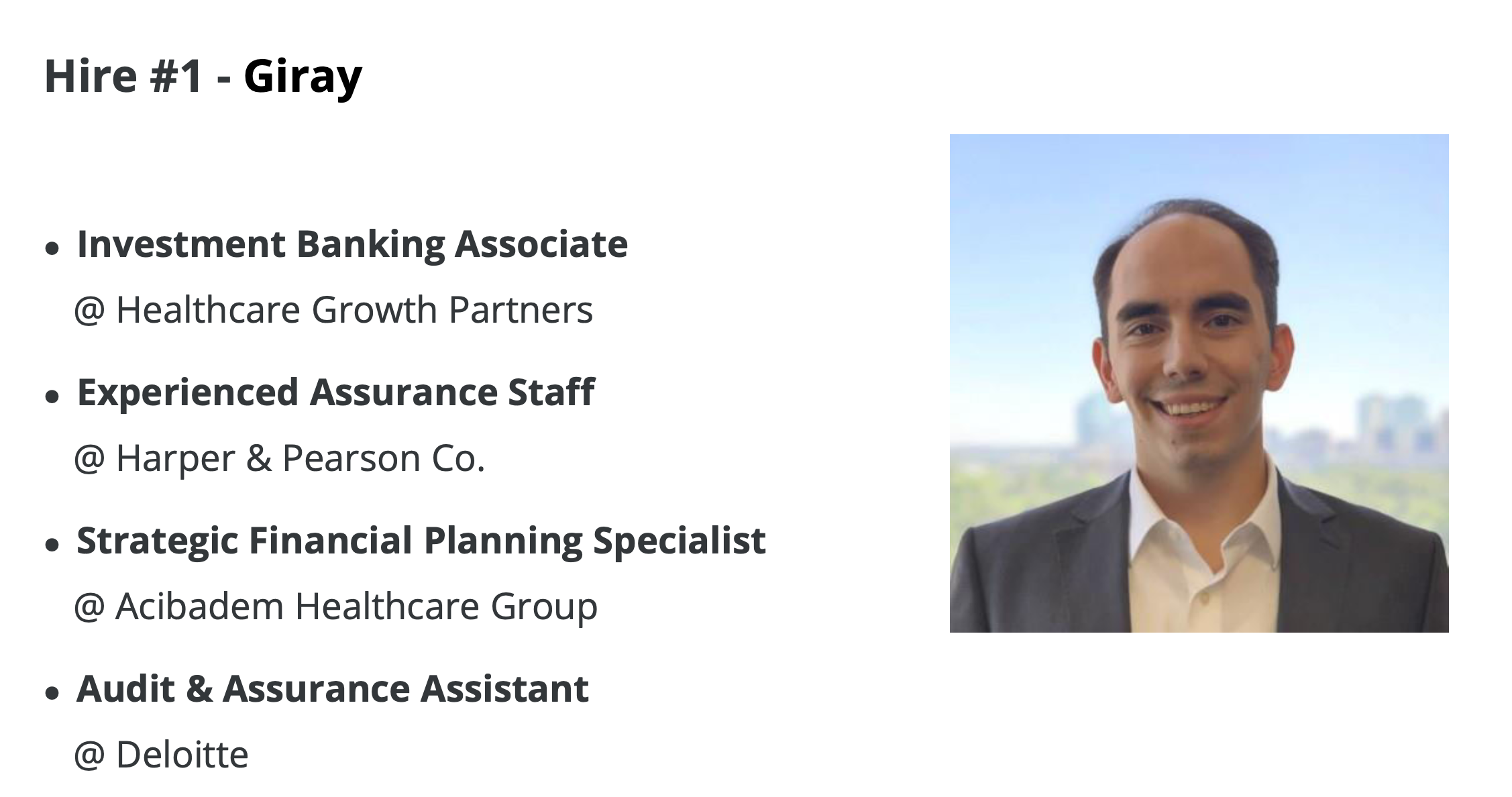
Giray came across my plate, and I thought, here’s someone with a unique skill set that could fit into the broader finance function. His experience in healthcare stood out to me since my current company also worked closely with healthcare and patient engagement, hospital systems, and so on.
While he had no experience in budgeting or forecasting, he knew the players and worked in M&A, financial modeling, and company evaluation. Giray is also a CFA and a CPA, so I found an excellent hire here.
2. John
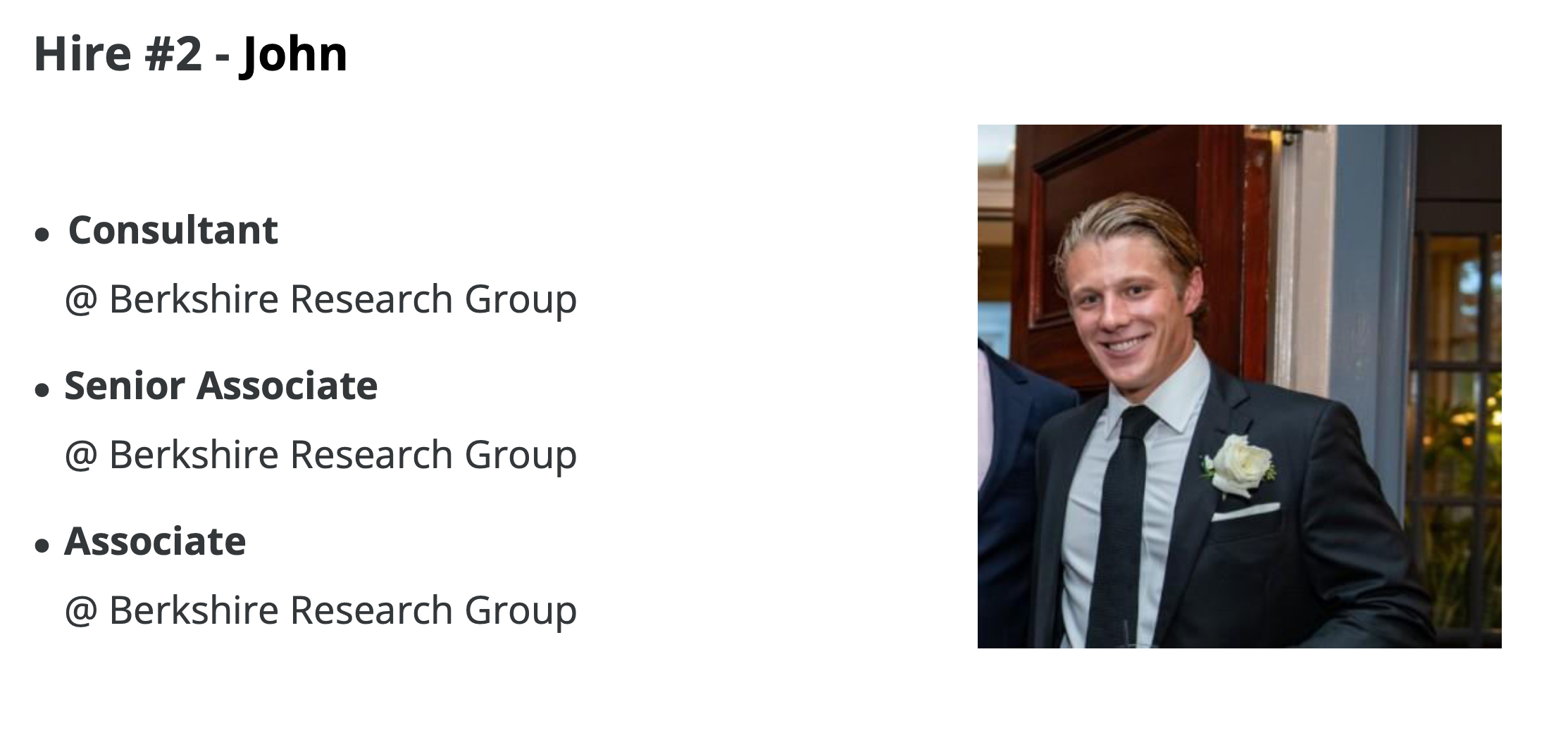
My next hire was John who was a consultant at Berkshire Research Group. With John’s experience as a consultant on restructuring, it was a completely different ballgame. However, he was still diving through P&Ls, identifying areas of opportunities for those companies, and knew how to optimize them.
Having someone who could assess a profit and loss statement like John could really appeal to me as I was carrying out this finance recruiting process. John could easily look at a P&L statement and pinpoint exact areas of improvement, he could raise questions that would lead to answers and provide actionable solutions. To me, those types of skills would be an asset to have on my FP&A team.
3. Jessica
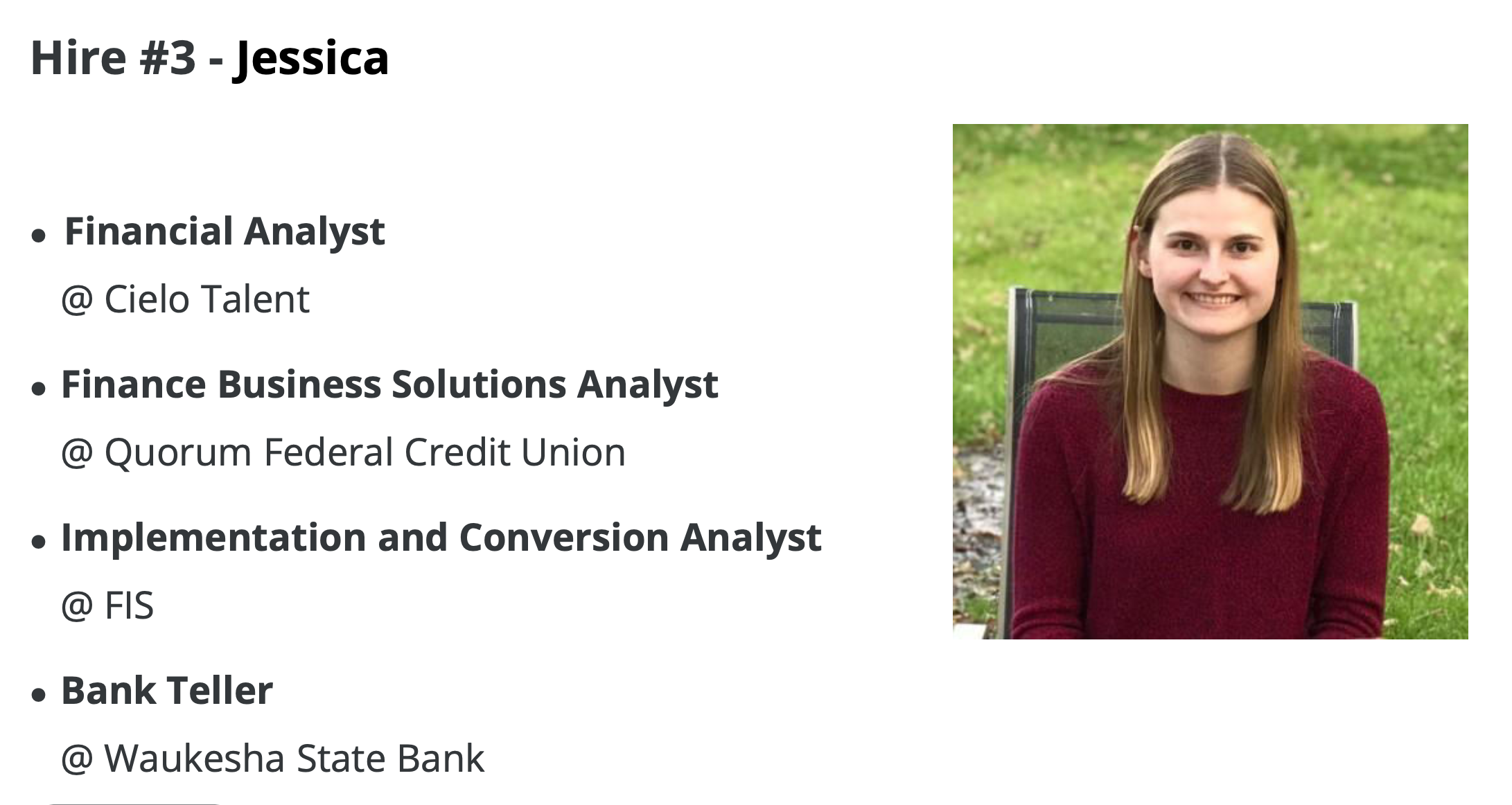
Jessica started as a bank teller and moved up into the role of Implementation and Conversion Analyst and so on. This was a hire that was just as much about the skills that she brought in as well as her knowledge about software and desire to learn.
What you’ll notice about all three hires is that something is missing from their resumes. Not one of them had FP&A in their title and it works because everyone brings a completely different skill set to the table.
- When I need someone to carry out scenario planning or dynamic modeling, Giray is my guy.
- When I need someone to analyze a P&L, compare budget vs actuals, and provide feedback, I turn to John.
- When I need someone to work with me on the procurement side of things and expense planning, I rely on Jessica.
Everyone brings a unique skill set to the team and each adds value in their own way.
4 hiring hacks: FP&A and finance recruitment
It’s great to have the best people and a diverse skill set in your finance function, but how can you find people like this?
Here are some of the best hiring practices for recruitment in finance:
1. Look through the resumes yourself
When we posted the job ad for Giray’s role, our team of financial recruiters asked me what I was looking for. Of course, I began listing all the desirable skills and experience I’d like to see in the perfect candidate. I emphasized how I’d like to hire someone who knew our software, had experience in FP&A, and could really hit the ground running.
So, of course, they went out and began the finance recruiting process, and gave me resumes matching that description. However, Giray’s resume had been dismissed, so I hadn’t seen it because it was rejected in the system.
I soon realized that as the hiring manager, I needed to look through every resume myself. To me, that was the only way I would know who I was looking for and narrow down the criteria. We had almost 1000 resumes and I looked through every single one of them. It took time, yes, but it was worth it.
If you're relying on the recruiter to find the talent for you, you're going to miss the right talent.
By looking through the resumes myself, I came across Giray’s and I knew he was the ideal candidate. The same thing happened when I hired John and Jessica.
2. Don’t place strict resume parameters
You’ll lose really good talent if you rely on the recruiter to follow specific parameters that may not be right or what you need.
If you think hiring is one of the most important things you'll do as a manager, then do the work yourself. Put the time in, look through the resumes, and find the right person for the role. If you’re not willing to do that, you risk hiring the wrong person and having to fix that mistake later.
If you’re focusing on hard skills and you think someone must be an expert in a certain software you use at the company, you might want to rethink that approach.
We recently switched FP&A software and we’re now implementing something entirely new, and everyone needs to learn how to use it. So, before you set strict parameters, consider whether you’re doing what’s best for the team or not.
Here are some of the resume selection best practices that I like to follow when carrying out recruitment in finance or FP&A:
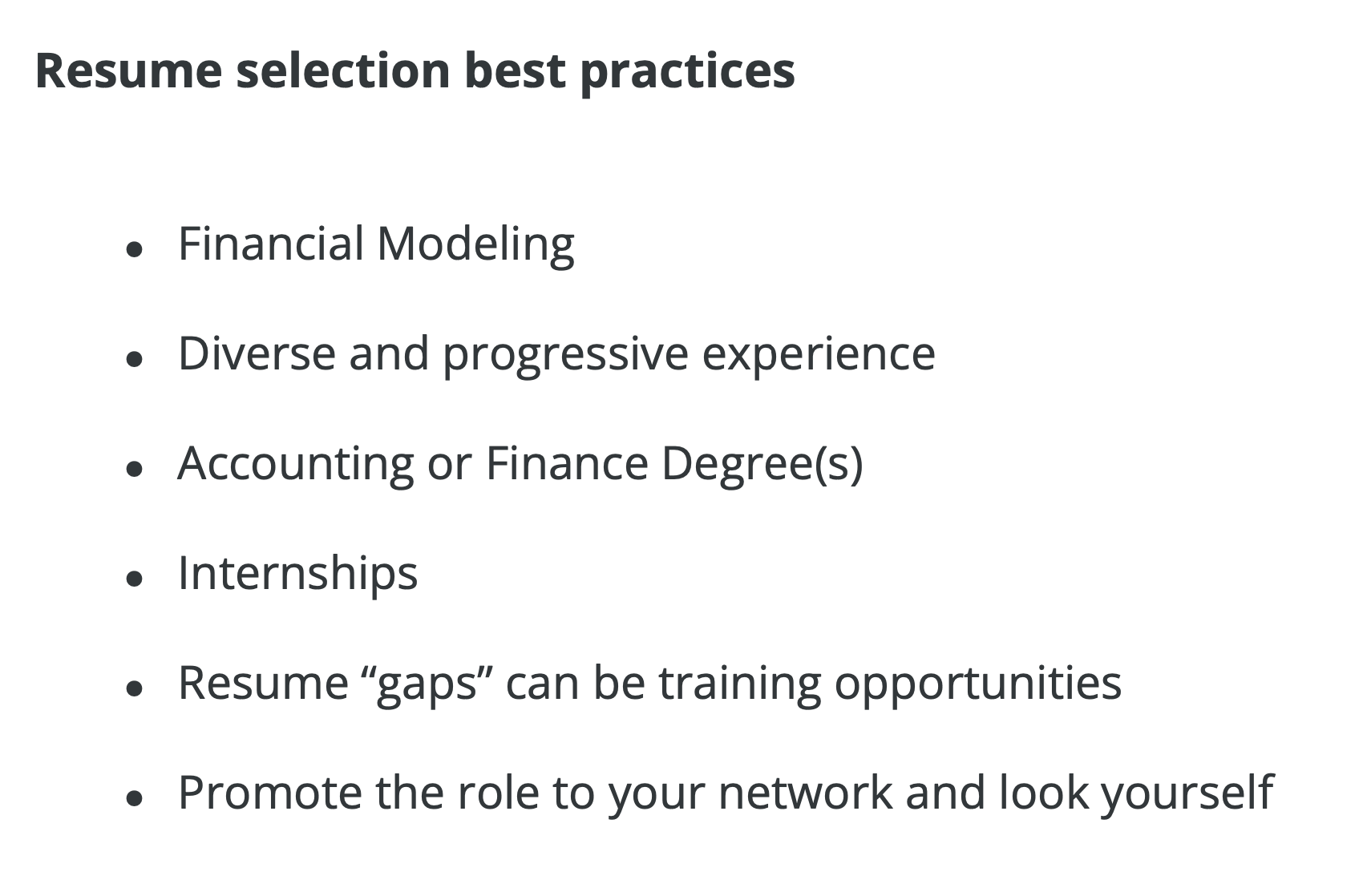
3. Ask the right questions
When I interview someone, I want to know if they can use Excel. Can they assess a P&L statement? Do they know how to construct it?
With the financial statements, I find that type of experience and skill set more important than knowing how to use a specific software at this current state of time.
It's great if you find someone who happens to check all the boxes. But I strongly advise that you don't consider ‘ticking all the boxes’ as a requirement. Instead, try to find out more about the candidate’s story and why they're interested in the role.
You can learn a lot from their answer to a simply question like "why do you want to work for our company?". It’ll tell you whether they’re passionate about the industry, the specific reasons they're interested in joining your team, or if they’re simply looking for a job.
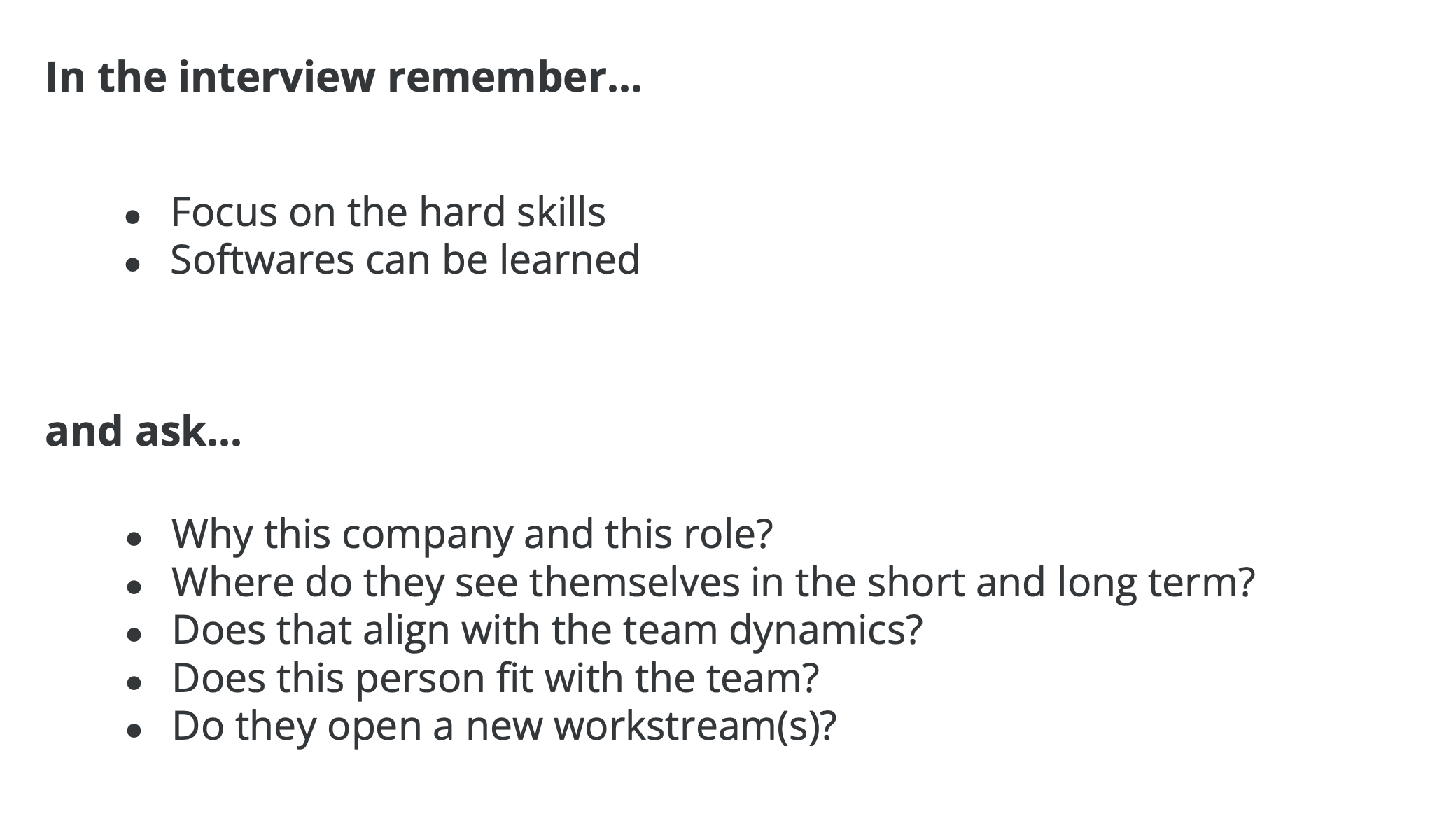
4. Hire for your future team
Also, consider candidate’s career aspirations and find out which path they’re most interested in. For example, maybe you’ll find someone who is an excellent fit for your team with a diverse skill set. Great, but where do they see themselves in 12 months, or a few years down the road? What are their career goals and how can you help them?
I always say to anyone who’s working on recruitment in finance or FP&A – hire for your future team, not for today.
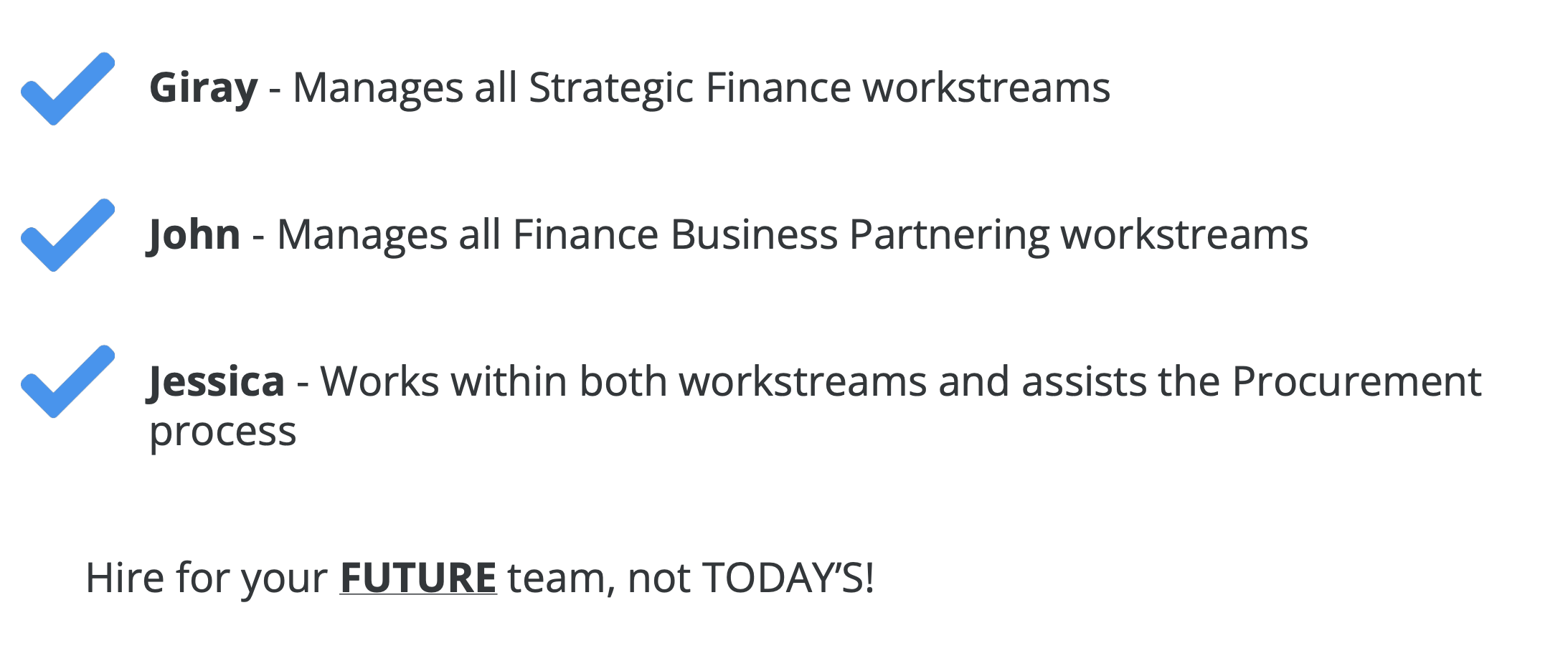
If you're hiring today and saying, “I’m Director of FP&A therefore I want to hire an FP&A Analyst who knows the software and we’re just going to continue doing things the same way going forward.” – I'm sorry to be the one to tell you this, but that mindset won’t set you or your team up for success.
Instead, think about the team you want to have around you in the future. How can you build a team that adds value to the company? That's how I prefer to approach the hiring process and for me, at least, it works.
Actionable takeaways:
🎯 Consider hiring for future skills and team needs rather than just current roles.
🎯 Be willing to look past resumes yourself rather than relying solely on recruiters.
🎯 When interviewing, understand the candidate's full story and motivation beyond just hard skills.
About the author:
Patrick Dennehy is the Senior Director of Finance at Kyruus Health. Patrick was one of our incredible speakers at the FP&A Summit in Boston and this article has been adapted from his session on the best hiring practices for FP&A teams.
Don't miss our next FP&A Summit - coming to a city near you!
We host the best finance events for anyone who wants to learn how to succeed in their role, network with peers, build a trusted network, and hear from top finance leaders and speakers in the industry.
Find out more about our events over on our Events Calendar.



 Follow us on LinkedIn
Follow us on LinkedIn


